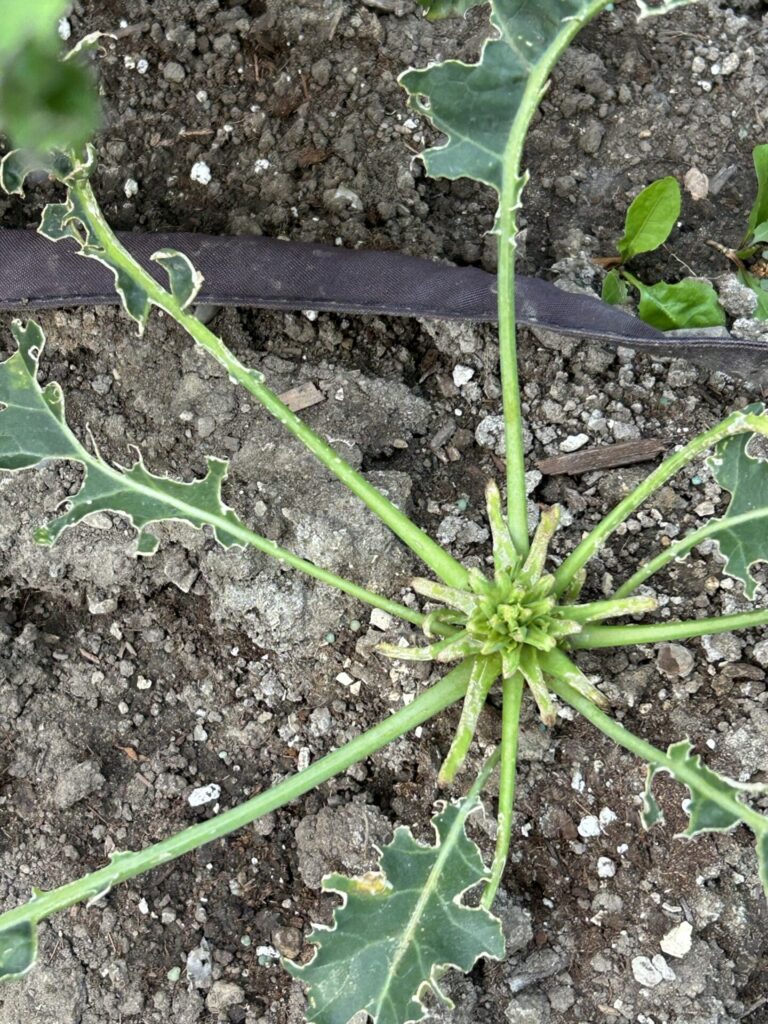
The vegetable plants in the ground and in the post are completely eaten. I have sprayed them with the soap insectiside Bug be Gon to no effect. The leaves are completely eaten and even the stalks. I examined the leaves but found no parasites.
Thanks for contacting us about what’s eating your vegetables (and also for providing such a clear picture!). It must be so frustrating to have your hard work destroyed, especially when you don’t know what’s causing it.
Unfortunately, without more information (and often even with more) it is difficult to answer your question. A range of insects and small animals eat vegetables and sometimes — depending where you live — so do deer.
These websites from the University of Massachusetts may help you do further detective work before you use more insecticidal soap. Your vegetable-gobbler could be a small animal and if so, there are suggestions for how to repel/exclude them.
What’s Eating My Vegetables (University of Massachusetts)
Excluding/Repelling Wildlife (University of Massachusetts)
Some insecticides — even “Eco-friendly” and/or home remedies — can kill beneficial insects which are valuable to gardens as a natural pest control because they prey on aphids, etc. and are an invaluable part of our natural ecosystems. Sprays can also damage some plants. Use soaps/sprays/chemicals discriminately and only after you have done significant homework to identify the actual pest(s).
Commercially-made insecticidal soap is considered safer for humans, pets, wildlife and beneficial insects than home remedies (but scientific advice changes over time). Please note -Master Gardeners do not endorse the use of any home remedies.
Many pests (especially light infestations) are manageable without insecticidal soap (e.g. floating row covers; hand picking or brushing off insects/larvae/caterpillars; removing and destroying affected leaf parts; washing off eggs and insects with a strong spray of water, etc.) – see the Washington State U fact sheet link directly below – however, note that the fact sheet suggests BT or Btk (Bacillus thuringiensis) does not kill beneficial insects; newer evidence suggests Btk can also kill endangered native moth and butterflies. The Toronto Star article below suggests an alternative to Btk could be a commercially created form of a natural virus but this virus also kills Monarch caterpillars.
The “moral” of this is to just be careful with any non-manual means of control — and that pest problems, identification and solutions can be very complex – unless it is an animal that you can exclude easily through some form of manual barrier! Even with an insect pest the first line of defence is a physical rather than chemical control.
Organic Pest Control (Washington State University)
So What Is Insecticidal Soap Exactly (The LaidBack Gardener)
Insecticidal Soaps for Garden Pest Control (Clemson University Extension)

